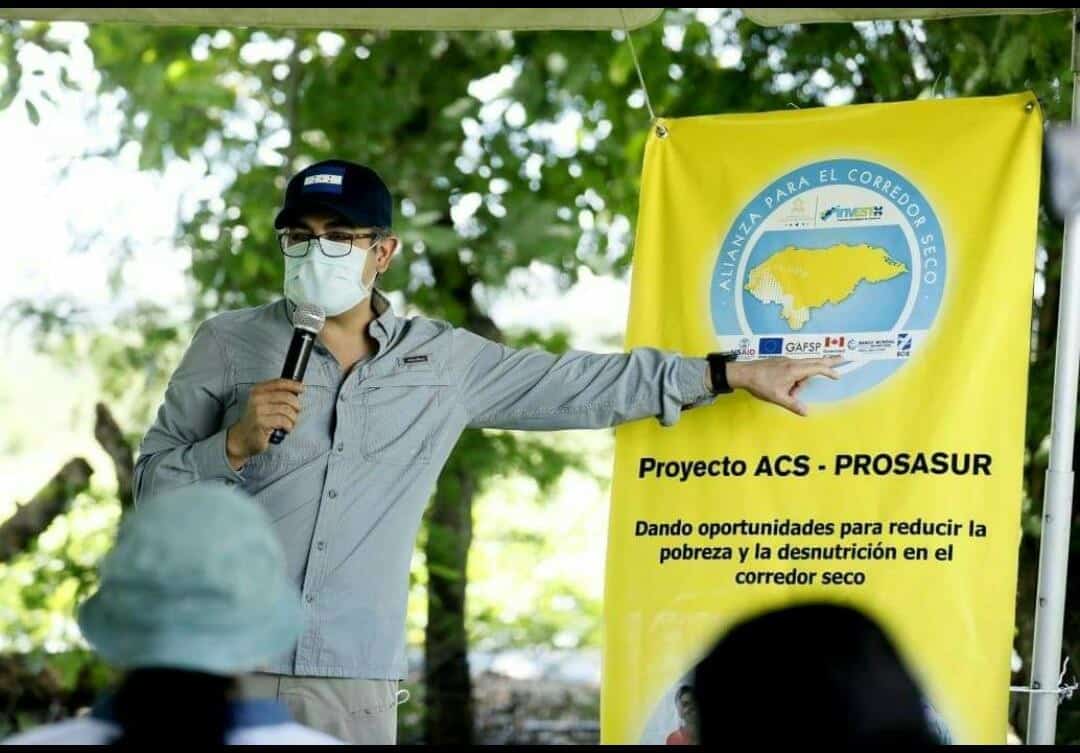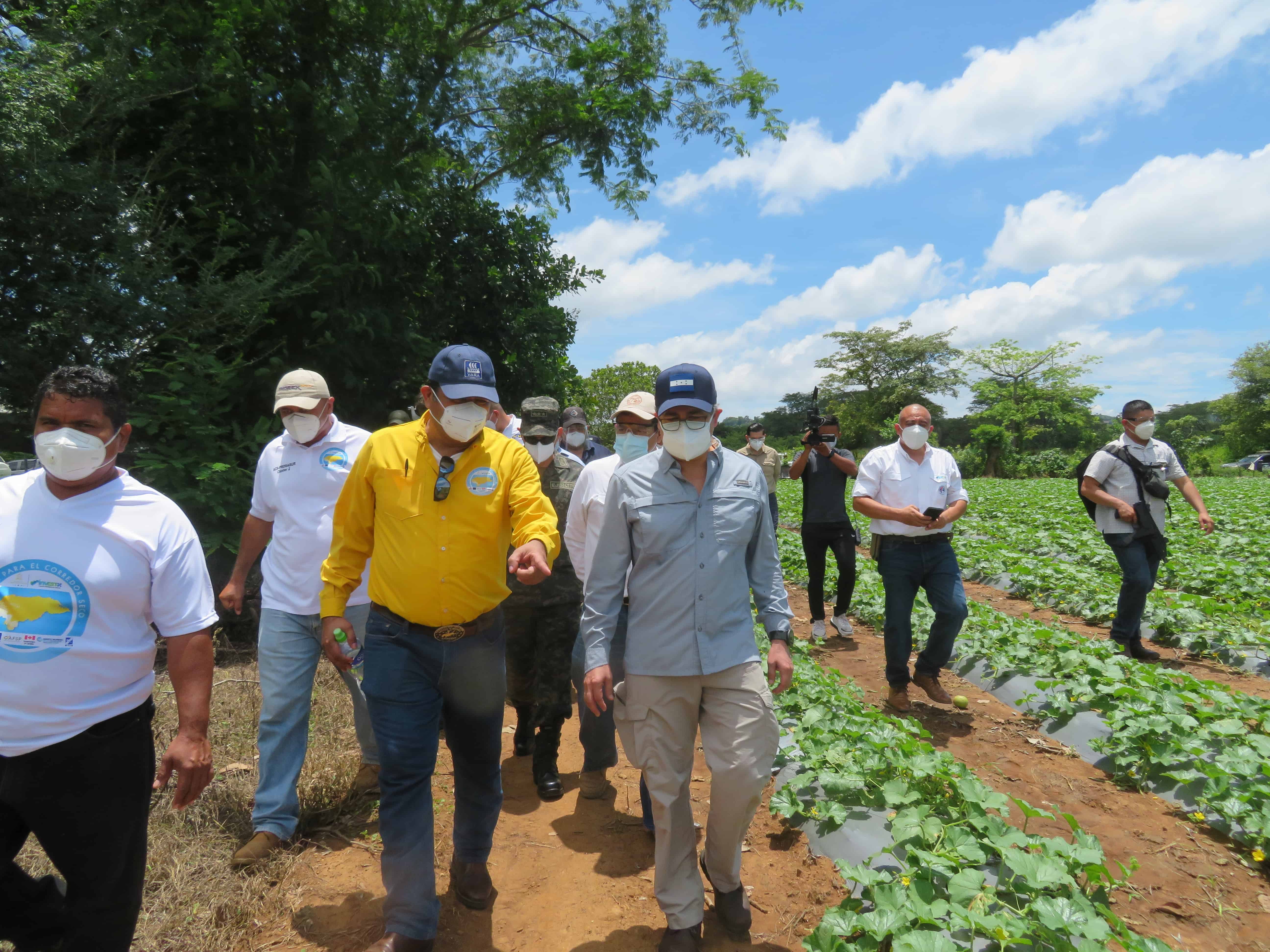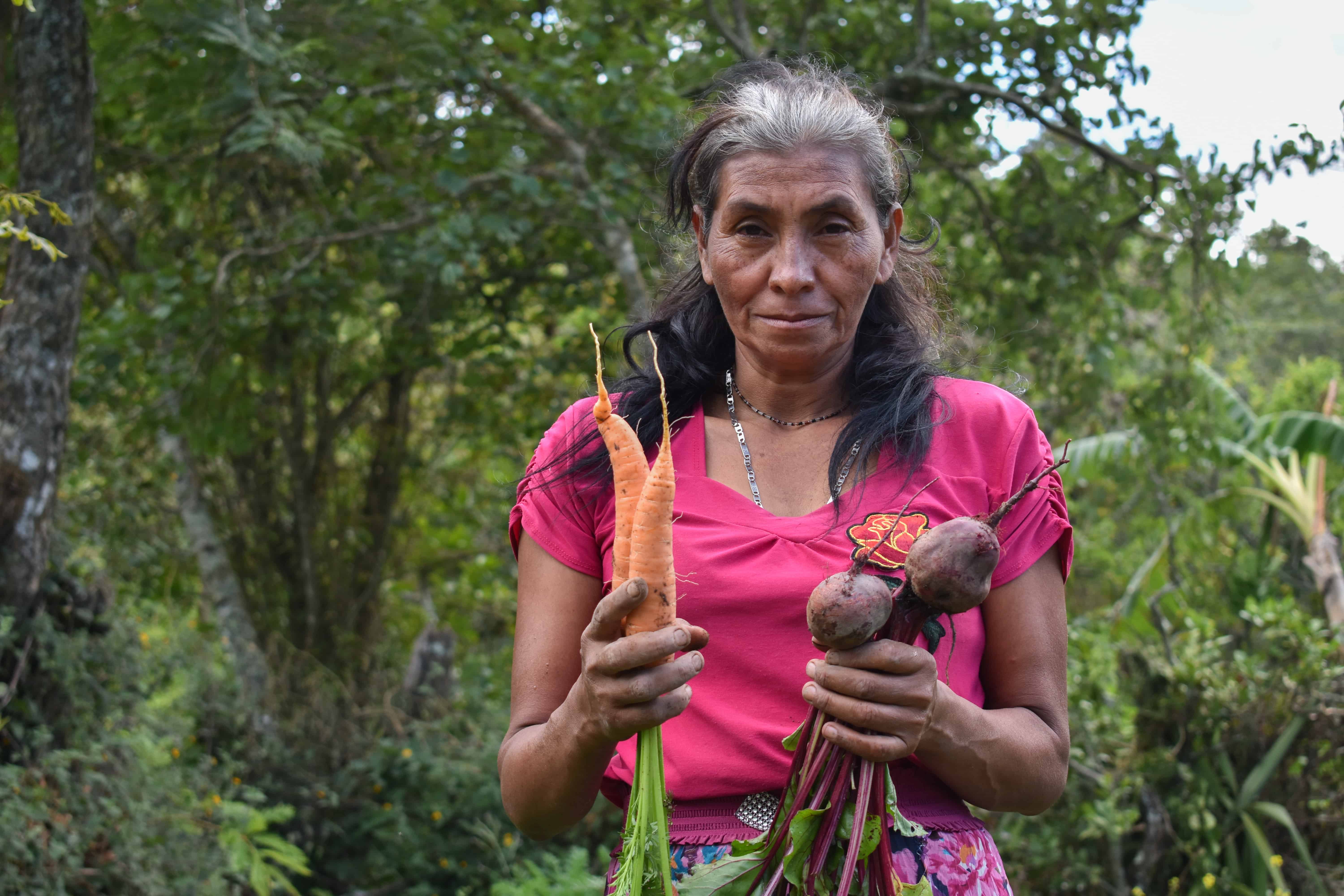
Honduras’ President Juan Orlando Hernández visits the southern Dry Corridor
By Yajaira Hernandez and Janey Fugate
Honduras President Juan Orlando Hernández visited the small community of Jacalito, in Namasigüe, Choluteca. He was there to see how the Dry Corridor Alliance is supporting smallholder farmers growing in one of the most climate-fragile regions in the world.
“We are visiting the whole countryside to see successful stories like this,” said President Hernández, addressing the group of families, project team members and other officials gathered in Jacalito on Sept. 10.
Funded by both the World Bank and the Honduras Strategic Investment Office (INVEST-H), ACS-PROSASUR is part of the broader Dry Corridor Alliance project. The project addresses water scarcity, hygiene, child under-nutrition and rural livelihoods, aiming to lift 50,000 families out of extreme poverty by improving growing practices, among other techniques. Creative implements programs in 12 municipalities in the departments of Choluteca y El Paraíso, working with 6,000 families.

Jacalito is home to 22 of those families identified by ACS-PROSASUR. The project supplied them with five rainwater storage tanks, as well as drip irrigation systems and training on agricultural best practices. Drip irrigation, which involves using long hoses called drip tape punctured with holes that line up closely with the seedlings, reduces water use by at least 30 percent.
Representing these families at the president’s visit, farmer and community leader Ubence Quiñónez testified to the project’s effective farming methods and investment in their land.
“This project is a dream made reality,” said Quiñónez, addressing President Hernández and José Leva Bulnes, president of the intervening board of INVEST-H and an engineer. “We received water storage tanks, irrigation, tools, fertilizer and insecticides that guarantee we can plant at all times of the year.”
Quiñónez and four other families grow corn, beans, pumpkin and melons on the plot of land the group visited. The president saw firsthand how the water collection and storage tanks offset the risks posed by increasingly erratic rains in the wet season and more intense dry spells. Storing water to irrigate crops during droughts, the water tanks combined with the installation of drip irrigation systems give families stability during the planting and harvesting periods and prevent crops from dying.
Quiñónez said that harsher dry seasons no longer devastate their yields.
“Before, we would plant and then lose our harvests in the winter (dry season),” said Quiñónez. “But now with the irrigation system and other technologies we’re using, we have the certainty that we won’t lose everything in the winter.”
In Quiñónez’ plot, he and the other families can now harvest up to three times per year, whereas before the drip irrigation systems were installed, he’d be lucky to have two harvests. Innovations like these and improved practices can’t solve every problem Mother Nature may throw at them, but small holder farmers’ resiliency and profitability can be drastically improved.
With these techniques, as well as environmentally friendly fertilizers and better seeds, producers can go from growing for subsistence to commercializing their excess.
“The president and other representatives saw that it doesn’t take a huge investment to raise the standards of living of small holder farmers and make their work sustainable,” said Jorge Lainez, ACS-PROSASUR’s Chief of Party in Choluteca and Paraiso. “The president not only saw how important projects like ours are in enhancing production, nutrition, and income for farmers, but also in managing natural resources like water, the protection of water basins, and giving these producers technical assistance.
Eight of the families involved in ACS-PROSASUR’s agricultural projects in Jacalito are led by women and single mothers, highlighting a major focus on the project.
ACS-PROSASUR has several programs designed to empower rural Honduran women, who often the go unrecognized even as the primary breadwinners of their families. The project offers business plan development trainings, women’s and childhood health classes, and support in starting community gardens led by women’s cooperatives.

A quarter of humanity is facing a water crisis, with Central America coming out of a drought earlier this year. As climate change continues to alter weather patterns and raise temperatures, organizations will have to continue to adapt, focusing on developing environmentally sustainable methods to increase farmers’ resiliency in the region.
In March, President Hernández declared food security in the Dry Corridor a national priority for Honduras, given COVID-19’s disruption of value chains and supply lines compounded with the ever-present threat of climate change and water scarcity. But seeing projects like ACS-PROSASUR can encourage greater efforts to bridging agricultural resilience with economic growth that benefits families.
“The men and women who work in the fields need to be respected. They have a right to a better way of living,” said the president. “We want to give those who work in the fields a new way of living.”
